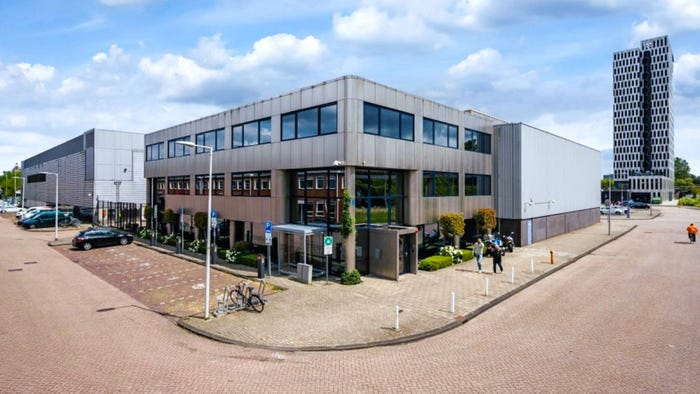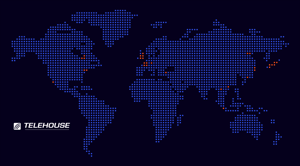New Data Center Developments: June 2024New Data Center Developments: June 2024
We look at some of the latest data center developments that have been announced over the past month.

The demand for new data centers isn’t showing any sign of slowing. With new projects being announced each week, keeping track of the latest data center developments is not always easy.
To keep you informed about the latest data center news involving design, construction, and related developments, we bring you the highlights from the past month.
This curated selection will help you stay on top of the latest data center development news with ease.
North American Data Center Deals
Cologix has announced the completion of its fourth data center in Columbus, Ohio. The COL4 facility is being promoted as the first AI-ready colocation data center in the region, laying the groundwork for “seamless AI integration with cloud services.”
Cologix’s portfolio of four data centers in Columbus now spans 500,000 sq.ft and 80 MW of power.
US colocation firm DataBank held a dedication ceremony for its new Orangeburg Data Center Campus in the Hudson Valley, New York State. The company’s first data center on the campus – the 30 MW ‘LGA3’ facility – is currently under construction and will open in early 2025.
Elsewhere, Meta has been named by regional press outlets as the company looking to build a new data center in Davenport, Iowa, and another in Cheyenne, Wyoming.
Meanwhile, Indiana Governor Eric Holcomb has announced that Microsoft is planning to invest $1 billion on a new data center in the state.
“Microsoft plans to build the data center in La Porte,” reports WFYI. “The investment … is expected to bring only about 200 jobs within the next eight years.”
Peak Mining, part of the Northern Data Group, has purchased a second 300 MW site in Corpus Christi, Texas. The location is adjacent to the 300 MW mining facility that’s already under construction.
European Data Center Developments
In Europe, a data center construction boom is occurring in smaller secondary markets across the continent, with a record 273 MW of new capacity expected this year, according to fresh insight from CBRE. This includes 56 MW of capacity already delivered in the first quarter and exceeds the previous record of 228 MW set in 2022.
According to the real estate services firm, the growth is driven by cloud service providers seeking to serve local markets directly. Eight of the 10 secondary European markets tracked by CBRE are expected to see double-digit growth in data center supply, with five markets projected to exceed 100 MW of capacity by year-end.
Prime Data Centers has outlined plans to develop a 26,000sq.m data center in Madrid, Spain. The company has secured 7.6 acres in Alcobendas with plans to develop a facility that will be able to deliver 40 MW of critical power.
The news came as Reuters reported that Amazon Web Services (AWS) would invest €15.7 billion in data centers in Spain’s northeastern Aragon region. Meanwhile, Spanish energy firm Solaria has entered the data center market after obtaining 155 MW of capacity from grid operator, Red Eléctrica.

CapitaLand Ascendas has completed the refurbishment of the PvV data center in Amsterdam. IMAGE CREDIT: CAPITALAND ASCENDAS
Elsewhere, CapitaLand Ascendas has completed the €19 million ($20.5 million) refurbishment of the Paul van Vlissingenstraat (PvV) data center in Amsterdam, Netherlands.
The refurbishment was undertaken to enhance the efficiency of the development and meet the growing operational demands of customers. PvV now has a power capacity of 1.4 MW to 2.3 MW, a PUE of 1.25, and an expanded floor capacity to accommodate 450 racks across 16,500 sq.ft.
Further north, Google is planning to spend €1 billion ($1.1 billion) to build out its main data center in Finland because of its easy access to green energy.
The expansion will increase staffing by a quarter to 500 people, a spokesperson told Bloomberg this week. Google declined to disclose what impact the investment will have on data capacity at the site.
Asia-Pacific Data Centers Builds
In Asia-Pacific data center news, Google has committed to making $2 billion in investments in Malaysia, including developing its first data center and a cloud facility in the country.
The data center and Google Cloud region facility will support 26,500 jobs across various sectors in the country, with the total economic impact valued at $3.2 billion, according to Malaysia’s trade ministry.
Elsewhere, Singapore aims to increase the amount of power it allocates for data centers by as much as 35%, while South Korean South Korea eyes more nuclear and renewable power as data center demand surges.
LG Uplus, one of South Korea’s largest telcos, said it is planning to build a new data center in the northwestern city of Paju to service growing demand.
According to The Korea Herald, this new facility will span approximately 73,712 sq.m and surpass the size of the company’s two existing large-scale data centers in Pyeongchon, south of Seoul.
In Japan, Gaw Capital has acquired a property in Fuchu City, a well-established data center cluster near Tokyo, and Airtrunk has officially opened its second data center in Tokyo. One of the largest data centers in Japan, the TOK2 facility spans more than 4.6 hectares and is scalable to over 110 MW.
Middle East and Africa Data Center Investments
Raxio Group, a data center company backed by global investor Meridiam Infrastructure Partners and US private equity firm Roha Group, is opening its first facility in Mozambique as part of its $290 million investment strategy in Africa.
US-based tech startup Iozera has signed a memorandum of understanding with the Moroccan government to establish a 386 MW data center and AI hub in Tétouan. The news comes as Oracle announced it is planning to open two public cloud regions in Morocco.
Meanwhile, Google is building out the first undersea fiber optic cable that will directly connect Africa with Australia, helping to shore up internet access in one of the least-connected parts of the world.
The cable, called Umoja, follows the construction of Google’s Equiano cable that connects Africa with Europe. The new line will start in Kenya and travel overland through Uganda, Rwanda, Congo, Zambia, Zimbabwe, and South Africa before crossing the ocean to Australia, the company said.
The announcement came just days after several nations in East Africa, including Kenya, experienced slow internet connections after at least one subsea cable serving the region was cut. Damage to four subsea cables off the west coast of Africa also disrupted internet services across the continent in March.
Staying in Kenya, Microsoft and G42, the UAE-based AI firm, are joining forces to build a $1 billion geothermal-powered data center in the Olkaria region, the initial phase of a multiyear plan to dramatically increase cloud-computing capacity in East Africa.
About the Author
You May Also Like









